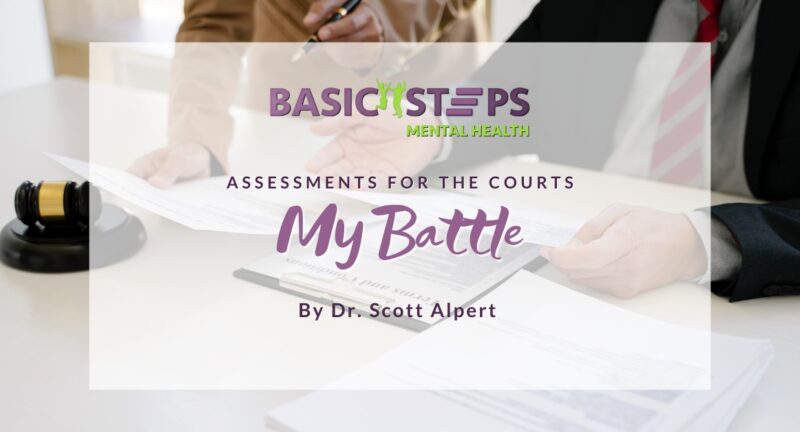
The Benefits of Slowing Down
Have you ever made those rash decisions, blurted out something, and then later regretted it? Have you ever talked over someone else when they were speaking because you were impatient or defensive? Then this article was written for you.
The cerebral cortex is the main area in the brain that processes information. When stressed out, angry, or intoxicated, this part of the brain goes offline and we are at the whim of our hindbrain, which is in charge of instinct and survival. People who operate from this part of the brain either end up in the doghouse, jail or worse. The key is slowing down so that you can think more clearly.
I worked at a crisis center for 11 years and many who entered were not in their right mind (for various reasons), and it was my job to decide the best way to treat them. The first task was simply calming them down so that they could explain to me what they were going through.
It can be complex getting ourselves to calm down to think more logically, be more stable, and be easier to get along with. Therapists at a crisis center need to quickly determine if the crisis is due to an illness, an injury, substance use, or an old traumatic experience coming to the surface. 90% of the people we treated for suicidal ideation were victims of childhood abuse and beyond their level to cope.
When a person is overwhelmed, their regular way of getting through a problem won’t work and will suddenly shut down. Many believe that God only gives a person what they can handle. Well, at the crisis center, this wasn’t true. People beyond that level freak out and need a guiding hand to get them back to a centered place. Originally against the use of medication, believing that counseling is all a person needs, I changed my tune when I saw the amazing results medication had on those in crisis.
The first step to getting a person back on track is helping them relax. Put the phone away, take the day off from school or work, and simply breathe. Breathe in relaxation, exhale tension, and while doing so, scan the body and relax the tight muscles mostly found in your jaw, hands, shoulders, and feet.
Therapists must keep things simple with people in a crisis. The best practice is simply listening to them and at the same time remaining as calm as you can. For new therapists, this is the first item to really grasp. Know your audience. Realize that the person isn’t in any condition to take any information in, since they are not in their right mind. So, ease their tension by exuding hope and care.
In relationships, this approach works great. If your partner is blowing their top, it isn’t a good time to reason with them. Slow down, slowly move away from them, and let them blow off steam. If you feel physically threatened get out of there in a slow and predictable manner. Then let the storm blow over and connect with them after some time has passed and they have come back into themselves.
At the crisis center, I had to deal with these types regularly. To them, I was in the government plotting against them, so I had to tread slowly and cut down my interview to the bare bones. If my actions didn’t calm them down, medication would be administered, and in extreme cases, my job was to place them on a 5150 hold where they were on lockdown in a psychiatric hospital for 72 hours.
Here are a few suggestions to use in order to remain calm while dealing with stressful situations.
Preplanning is simply preparing yourself beforehand. Just before you interact with someone who looks upset, make a choice to remain calm otherwise you will get triggered by them, and the fireworks will begin.
The tool to use is called “Intention Setting.” This simply is focusing on what outcome you desire and holding onto that desire.
For example, before walking into the crisis center, I would say: “My intention is to be safe. My intention is to be in my loving heart. My intention is to seek to understand before being understood. And, my intention is to remain centered.” Those intentions worked well in my 11 years of service there.
When you find it difficult to find your center, simply breathe. Oxygen is great for keeping your mind active. Take in a deep breath, exhale, and center yourself in your loving heart. From a heart-centered place, it is easier to feel safer.
In Graduate School we took centering to the next step by becoming a “neutral observer.” This is where, in your mind’s eye, you take a step back and view the situation as if you were standing behind yourself. Then simply observe. You are safe as long as you hold onto your heart center and have compassion for what the other person is going through. This is the key. When somebody is upset, underneath their anger is hurt. We learned not to dabble in the anger but simply address the part inside of them that is hurt.
When we are triggered by the actions of others, it is usually because they have touched upon an underlying wound of ours. Old wounds don’t just go away, they have to be processed through. When counselors get triggered it is called “Countertransference.” Working through countertransference needs to be an ongoing process with therapists in order for them to remain helpful. If your counselor has lectured you, told you off, or been angry with you, it was because they are wounded.
Now, if you feel yourself reacting to what a person is telling you, excuse yourself (go to the nearest bathroom) and move away from the situation. Here, you can write out what was upsetting and rip it up, or maybe flush it. Next, wash your face and hands, and reset your intentions.
When people upset you, they either remind you of yourself or are doing something that is “wrong”. Oh, you know what I am talking about, especially when people drive like a bat out of hell, cutting in and out of lanes. How are you feeling while that is going on? When people break our rules it can be upsetting. Many of our rules are outdated and are termed – “Limiting Beliefs.” When people aren’t acting the way you want them to, they are wrong and you are right! Well, according to who? You? Who elected you judge and jury? When we believe that everyone needs to follow the way that we think, we are irrational. We cannot possibly get everybody to follow along with our beliefs. Each person has a set of rules all their own. Who is right? You? Overall, where did these beliefs come from? Are they valid? Many of our beliefs come from early childhood when we lacked social awareness. Therefore, scrutinizing your beliefs may be in order to reduce the number of times people get you upset. And yes, driving that way is wrong, but in trying to make them stop… well that’s what police are paid for. I’ll just drive safely and set an example for others to follow and let the police track these idiots down. Eventually, I end up treating some of these people anyway.
In communicating with others, it is important to slow down and care about what they are telling you because it is important to them. We refer to this type of listening as “heart-centered listening.” In being able to hear all of their words it shows them that they matter to you, even if their truth is hard to accept. To tell you the truth, it is very noble of you to hear them out anyway. To take this to the next step, ask them to talk even more about the subject. If you can handle that much honesty we refer to this as mastery!
“Sweetheart, what I’m hearing you say is that I am an idiot. Can you talk more about that?”
Believe it or not, you may learn a thing or two. In doing shadow work, our dark side can have a lot of valuable information for us to learn and grow from if we can wade through our own negativity.
If you do not agree with what a person is saying to you, try these few tips:
- Perception checking – this is simply repeating back what you heard them say. It is a way for them to hear their own words from your perspective. Many times the person will confess that they said it, but didn’t really mean it.
- Thank you – This is very disarming and my way of saying F/U. “Thank you for caring enough for sharing that with me.” Yep, my staff chuckles when I tell people this.
- Agree with them – sometimes what a person says is painful, but at the same time you know it is the truth. “Yes, you are right. I appreciate your honesty and I intend to learn from this and behave differently.”
My father told me to “Seek to understand before being understood.” He always heard my mother out and I never understood why he didn’t tell her off as well. One day he told me, “I know all of your mother’s buttons and I don’t push them.” Good advice. He probably did this because my mom was bigger than him and would have probably kicked his ass. LOL.
Here is a proven strategy to slow down:
Take in a deep breath, exhale, center yourself in your loving heart, set clear intentions, then seek to understand before being understood, use heart-centered listening, and use perception checking or basically repeat back what you heard them say.
Noted, this type of communication makes you secondary. Letting the person blow off some steam is very supportive and goes a long way in relationships. Overall, don’t take things personally.
Thank you for taking the time to read this article. It has been my pleasure to write these blogs for almost 10 years now. If there are any subjects you would like me to address, please email me at scott@basicsteps.life.
Compassionate Care is Always Available
There are many more tools and strategies you can use in your pursuit of happiness. Here is where we come in. Contact us at Basic Steps Mental Health and let us support and educate you on this journey back to your loving heart center. Imagine living a heart-centered life, regardless of what is happening externally. We’d love to be of help.
For 25 years, Dr. Scott Alpert, the clinical director of Basic Steps Mental Health, has treated over 7,000 people with mental health and addiction problems, using a Psychological approach that mixes and matches ten of the top approaches used in the industry. We are here virtually and in-person to help you get through this COVID-19 pandemic and many other difficulties you may be experiencing.
May you have good mental health.
Related Posts
Assessments for the Courts – My Battle
It was inevitable that I’d write about the legal system. Doing Mental...
Are You a Doer or a Viewer?
An interesting topic popped up in a process group this week about being a doer or...




